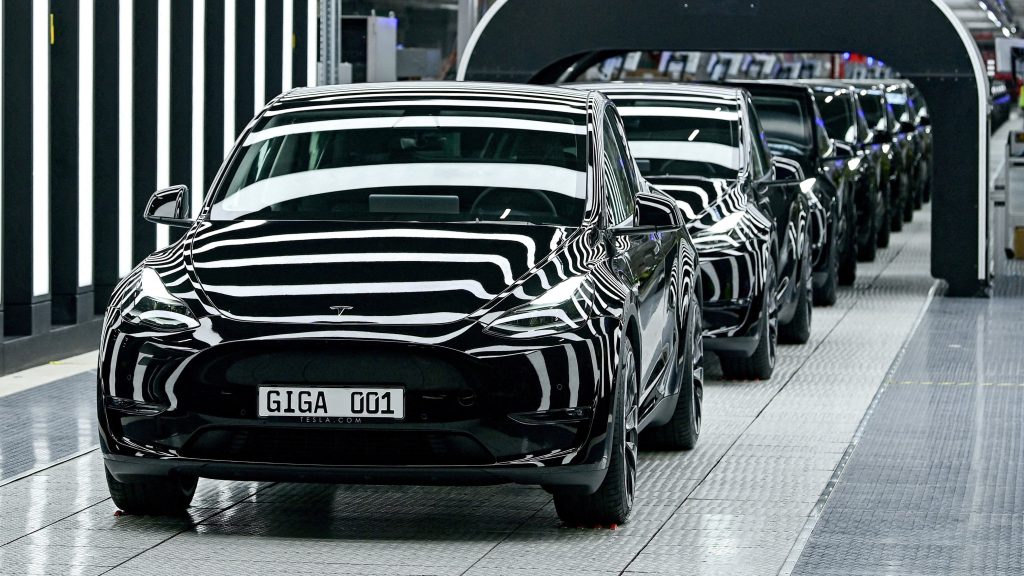
Tesla has begun assembling battery systems at its plant in Germany but will focus cell production in the United States in light of tax incentives under the Inflation Reduction Act (IRA), a spokesperson said on Wednesday.
The U.S. electric vehicle maker is also preparing to produce cell components such as electrodes, some of which will be sent from its site in Gruenheide in the state of Brandenburg, to the United States, the spokesperson said.
Cars produced at the Brandenburg site would in the “near future” contain batteries assembled locally, the spokesperson added.
“The focus of Tesla’s cell production is currently in the United States due to the framework created by the United States Inflation Reduction Act (IRA),” they said in a written statement.
EU leaders have expressed concern that local content requirements of much of the $369 billion of subsidies in the IRA will encourage companies to abandon Europe for the United States.
The European Commission has proposed loosening rules on state aid for investments in renewable energy, decarbonising industry, hydrogen or zero-emission vehicles, though Germany’s finance minister has warned Europe must not respond to the U.S. act with excessive subsidies.
Brandenburg’s economy ministry said on Tuesday that Tesla was prioritising its battery production plans in the United States, adding that to its knowledge the change of course would not impact the number of jobs available at the German site.
Chief Executive Elon Musk said in March 2022 that the German 50 gigawatt-hour battery plant would reach volume production by the end of 2023, but the plant and car production site have hit their targets later than planned.
Tesla has struggled to ramp up battery cell production in Fremont, California, and Austin, Texas, which experts have attributed to new and unproven techniques the company is having trouble scaling up.
It announced in late January it would invest over $3.6 billion to expand its Nevada gigafactory complex with two new factories, one to mass produce its long-delayed Semi electric truck and the other to make its new 4680 battery cell.
(Reporting by Victoria Waldersee; editing by Mark Potter and Jason Neely)